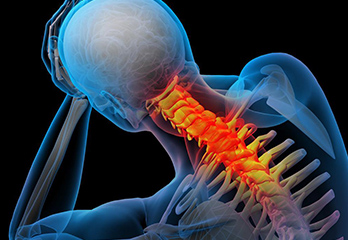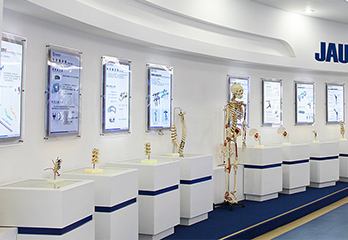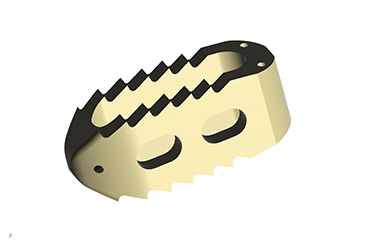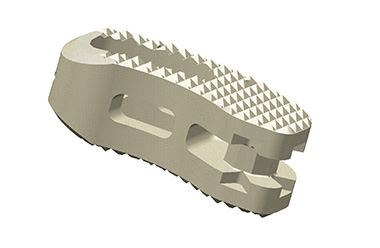Home > Product Center > ISpine LCageCervical and Thoracolumbar Fusion Cage
Products
◆ Pyramidalodontoid and runcinatestructural design enhances the stability of fusion cage and prevents its shifting
◆ Unique design of appearance and contour matches end plate and increases contact area
◆ Unique design of appearance and contour matches end plate and increases contact area
◆ “Bullet-head” design makes implantation easier and reduces resistance by 10%
◆ The 1/3 radial axis design of type-II fusion cage can place cage precisely into the ideal location within intervertebral space
◆ The 1/3 radial axis design of type-II fusion cage can place cage precisely into the ideal location within intervertebral space
Cervical and Thoracolumbar Fusion Cage (auxiliary to other spinal fixation product) is mainly used for patients requiring interbody fusion to reconstruct spinal stability due to spine degeneration disease, spinal segmental instability, olisthy, spinal stenosis, etc
◆ Active general infection, gestation, anabolic disorder, and severe osteoporosis
◆ Local infection at implant site
◆ Abnormal hypertrophy◆ Unstablebursting fracture and compression fracture
◆ Generalizedmetastatic tumor, resulting in osteolytic defect of adjacent vertebral body◆ Drug abuse, mental disease, general neurological disease, and immune suppressiondisorder
◆ Patients are unwilling to restrict activity or disobey medical advice
- Products
- ISpine ACP Anterior Cervical Screw-Plate System
- ISpine PCSPosterior Cervical Fixation System
- ISpine ODPVertebral Plate Shaping System
- ISpine PLS Posterior Thoracolumbar Fixation System
- ISpine Cage Cervical And Thoracolumbar Fusion Cage
- ISpine Mesh Surgical Titanium Mesh
- ISpine PKP Kyphoplasty System
- Service
- Sales Network
- Download
- Our Clients
- Product Manual
- Frequently Asked Questions
- Customer Feedback
- About Us
- Company Introduction
- Corporate Culture
- Policies and Regulations
- Qualification Certificates
- Expert Guidance
- Employee Moment
- E-catalog
- Industry News
- Company News
- Contact Us
- Addr:No.2 Caojiang Road, Shaoxing City, Zhejiang Province, 312000
- Tel:+86-0575-88158536
- Fax:+86-0875-88158530
- Email:jau@jaumedical.com
Copyright © 2017 JAU Medical ZheICP05002236 Powered by:HanSun







